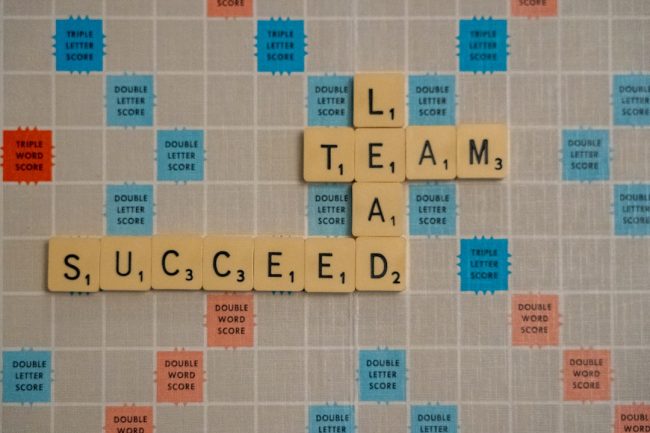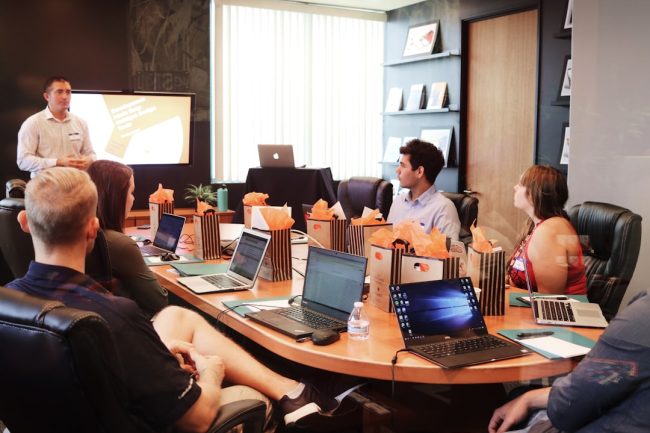A Thorough Examination of Serious Games in Workplace Learning As learning & development specialists at Designing Digitally, Inc. We understand that serious games are effective tools intended to engage and educate players, not just provide amusement. Serious games are interactive experiences that combine educational goals with gaming elements in an effort to teach participants particular knowledge or skills while maintaining player interest. Serious games offer immersive settings that allow learners to practice real-world situations in a risk-free environment, in contrast to traditional training methods.
With this creative method, we can use gaming’s motivational elements to improve learning results. There are a number of different types of serious games, such as role-playing games, simulations, and gamified e-learning courses. They are created with a specific goal in mind, be it technical training, problem-solving skills development, or teamwork improvement. Designs Digitally, Inc. We are aware that incorporating serious games into workplace education can revolutionize how staff members learn and grow.
We can produce captivating experiences that connect with students and promote deeper understanding by utilizing the concepts of game design. There are many advantages to using serious games in workplace training. Above all, they encourage motivation and involvement among staff members. Conventional training approaches frequently fail to hold participants’ interest, which results in disengagement and poor memory recall. Serious games, on the other hand, foster an interactive setting where students actively participate in their education.
This active engagement fosters a sense of ownership over the learning process in addition to increasing motivation. Also, playing serious games encourages cooperation & teamwork. Employee collaboration is encouraged by the fact that many serious games are made to be played in groups. In addition to strengthening team bonds, this collaborative element replicates the dynamics of the actual workplace.
Inside Designing Digitally, Inc. We think that encouraging a cooperative learning atmosphere with serious games can result in better communication abilities and more solid bonds between staff members. Because serious games offer opportunities for experiential learning, they are especially effective at promoting real workplace knowledge. These games give workers the opportunity to put their theoretical knowledge to use in real-world scenarios.
Through practical application, employees can strengthen their learning and hone their critical thinking and decision-making abilities. At Digitally Designing, Inc. We make sure that workers can relate their training to their everyday tasks by emphasizing the value of experiential learning in our serious game designs.
Serious games also provide instantaneous feedback, which is essential for efficient learning. Players can see the effects of their choices in real time since they get immediate feedback on what they do. Through this feedback loop, students are encouraged to consider their decisions and modify their approach as necessary. By adding this component to our serious games, we assist staff members in better comprehending their positions and duties within the company. Several successful case studies can be used to demonstrate how effective serious games are for workplace learning.
A big healthcare company that used a serious game centered on patient safety procedures is one noteworthy example. The company observed a notable increase in adherence to safety protocols after putting staff members in realistic situations where they had to make important choices about patient care. After playing the game, employees said they felt more assured about their capacity to manage situations in the real world. A technology company that trained its sales staff on product features and customer engagement tactics through a serious game is the subject of another case study. Salespeople could rehearse their pitches in a virtual setting while getting performance feedback thanks to the game. Sales & customer satisfaction ratings for the business increased significantly as a result.
These illustrations show how playing serious video games can result in noticeable gains in knowledge retention and productivity at work. Creating successful serious games necessitates a careful process that complements the organization’s unique learning goals. At Digitally Designing, Inc. We place a high value on working together with stakeholders to make sure the game’s content is appropriate for the intended audience.
We are able to identify important knowledge & skill areas that the game needs to address thanks to this collaboration. In our game design process, we also stress the significance of user experience. A well-made serious game should be easy to use and captivating so that students can concentrate on the subject matter rather than figuring out intricate mechanics. Including components like challenges, rewards, and storytelling can improve the overall experience and maintain learners’ motivation during the training process. We can make serious games that are both entertaining and educational by concentrating on the user experience. It is crucial to assess the impact of serious games on knowledge application and retention in order to fully comprehend their efficacy in workplace learning.
Designs Digitally, Inc. We support an all-encompassing assessment approach that incorporates both qualitative and quantitative measurements. Assessments conducted before and after training can offer important information about the extent to which staff members have learned from the experience. Also, it is advisable to collect participant feedback on their experiences with the serious game.
Interviews and surveys can give us insight into how well the game achieved its learning goals & whether staff members feel more comfortable using what they have learned. We can make sure that our serious game offerings are in line with corporate objectives and continuously enhance them by examining this data. Despite the obvious advantages of serious games, organizations still need to address the implementation issues.
Employee resistance, or skepticism about using games for training, is a frequent barrier. Communicating the importance of serious games clearly is essential to overcoming this obstacle. Inside Designing Digitally, Inc. We stress how crucial it is to show how these games can improve learning outcomes and advance professional growth.
Providing all staff with access to the technology used for serious games presents another difficulty. When putting these training solutions into practice, organizations need to take into account things like internet access and device compatibility. Working closely with IT departments and carrying out extensive testing prior to rollout will help us minimize any potential technical problems and guarantee a seamless experience for all users. There seems to be a bright future for serious games in workplace education. We have the chance to develop even more immersive learning experiences thanks to technological developments like virtual reality (VR) and augmented reality (AR).
Through the use of these technologies, workers can be placed in authentic settings where they can hone their abilities and make choices free from the pressures of the real world. Also, serious games will become more and more important in training strategies as long as companies prioritize employee development and engagement. Designs Digitally, Inc.
By consistently looking for new and creative ways to incorporate serious games into workplace learning initiatives, we are dedicated to remaining at the forefront of this trend. We can assist organizations in developing a culture of ongoing learning and development by embracing this evolution. To sum up, serious games are a revolutionary method of workplace education that has many advantages for both businesses and workers. Using the power of gamification, we can design captivating training programs that encourage actual knowledge application and retention. As professionals in learning and development at Designing Digitally, Inc.
We are enthusiastic about how serious games can influence workplace training in the future and support organizational success.













